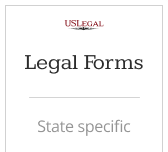Full question:
My mother is 93 yrs old, and credit card companies are now going to try and sue her for non- payments on her cards. She has been in and out of the hospital and nursing home for 2 years now. She was released from the nursing home again in July of 06, and I am now taking care of her at my home. She receives $1235.00 a month on social security and helps me with food, utilities, telephone, etc. as I am also on supplement social security due to ill health. She also has dementia and severe degenerate bone disease, and can hardly walk anymore. She also has heart problems and had a pacemaker put in. She does not make that kind of money to pay back the credit card debts that she owes, and we are now getting calls from debt collectors about suing her and garnishing her social security to pay these debts back. I was informed to get a per-se bankruptcy form from a library of law or some where, where they have these forms, and fill it out for her. I do not understand all of this, and how to go about helping her. My mother can not even leave the house anymore as she falls a lot, etc. so there would be no way she could appear in court on this. I would appreciate any advice or help you can give me.
- Category: Debts and Credit
- Date:
- State: Idaho
Answer:
See the following website:
http://www.uslegalforms.com/bankruptcy/idaho-bankruptcy-forms.htm
In a Chapter 7 bankruptcy proceeding, a court-appointed trustee will divide
the debtor's property into “exempt” property and “non-exempt” property.
Types of property that may be exempt are the debtor's home, auto, and
household goods. There are dollar limits on each type of exempt property.
The trustee will sell all of the debtor's non-exempt property and use the
proceeds to pay off the debtor's unsecured creditors. An unsecured creditor
is one who does not have a security interest in any of the debtor's property
as an assurance that the loan will be repaid. Examples of this would be credit
card debt or a signature loan. Secured creditors are protected by their
security interest in the debtor's property (called collateral). If a debtor stops
making payments, the secured creditor can take possession of the debtor's
collateral. Once the exempt property is liquidated and distributed among the
unsecured creditors, the remaining unsecured debt is discharged. However,
some types of unsecured debt, including student loans, child support, and
taxes, cannot be discharged, even in a bankruptcy proceeding.
This content is for informational purposes only and is not legal advice. Legal statutes mentioned reflect the law at the time the content was written and may no longer be current. Always verify the latest version of the law before relying on it.



